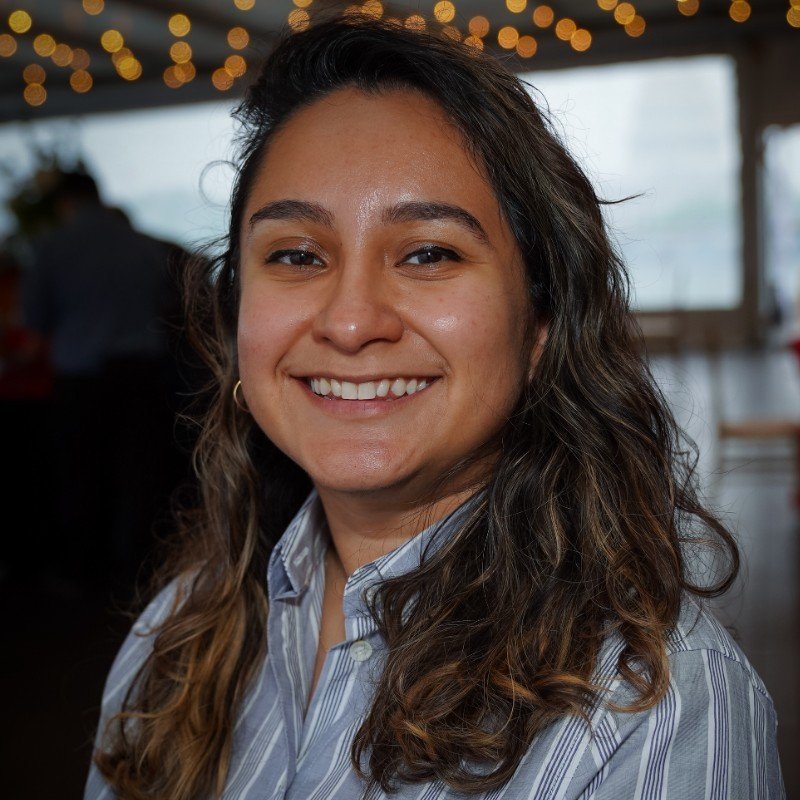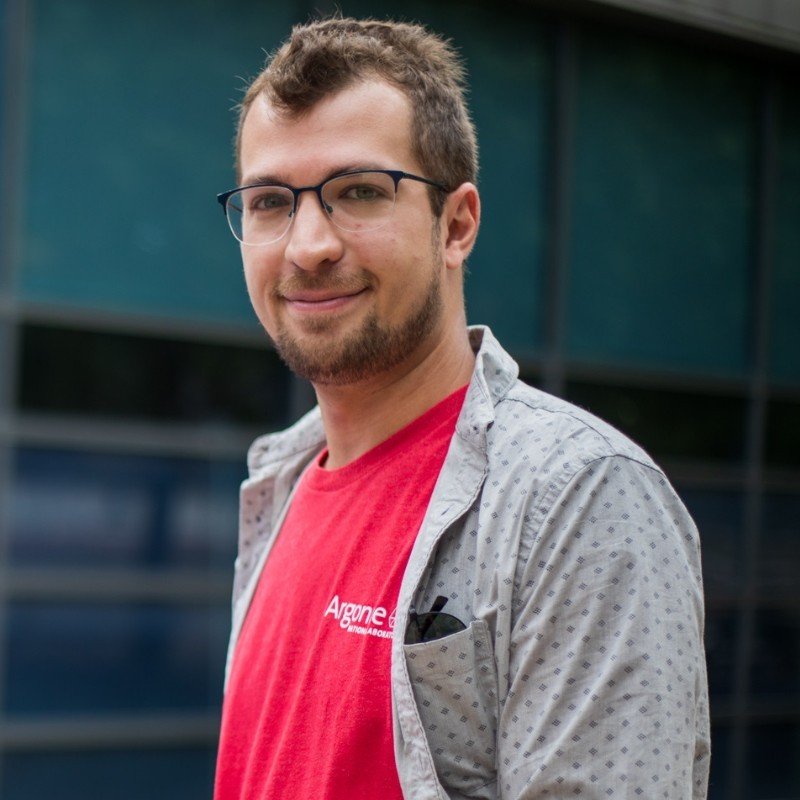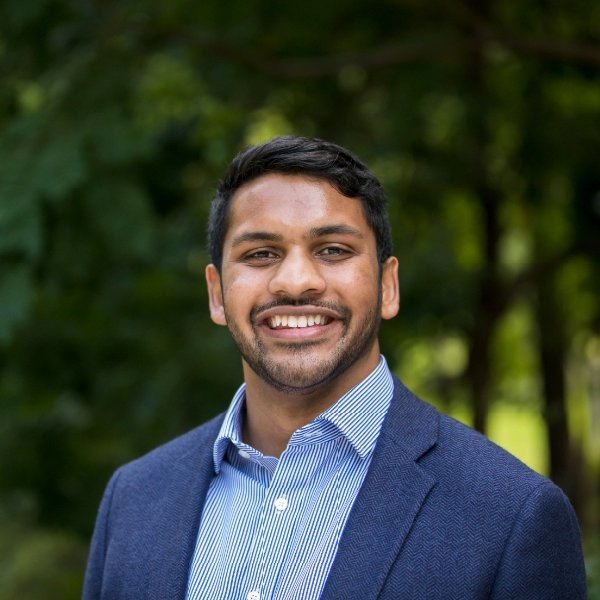Cookies Energizing a Clean Economy
Author: Cooke Alum Patrick Soltis, 2009 Young Scholar, 2014 College Scholar, 2020 Graduate Scholar, University of California at Berkeley
Cooke Scholars and Alums are known to be drawn to big problems. So, we shouldn’t be surprised that many of our cousins are dedicating their careers to the planet-sized challenge of switching to a society running on clean energy. The goal, of course, is to drastically reduce the greenhouse gas emissions of human activity. Everything from electricity to transportation to food is tangled up in a dependence on fossil fuels, which means there is plenty of space for Cookies who are driven to solve. In fact, every Cookie fighting climate change is working from a unique angle.
Katherine Diaz, 2010 Young Scholar, 2015 College Scholar, Carnegie-Mellon University
As Katherine Diaz notes, “Every job will be a climate job” in the not-so-distant future. Often, depictions of fancy new technologies dominate the renewable energy story. While engineering is important (Katherine herself started at Carnegie-Mellon as a civil engineer), the true opportunity in the energy space is its intersectionality. In fact, Katherine was drawn into the energy and climate space out of interest in the diverse perspectives needed to understand the challenge, from intergenerational wealth to public health.
Her work is now honed in on environmental justice, using her affinity for data and policy to understand the root causes of disparity. By day, Katherine is a Climate & Sustainability Specialist at the esteemed consultancy ICF, where she helps commercial buildings (think multi-family housing and offices) become more energy efficient through Energy Star certification.
She now has two degrees in public policy (with a data analytics focus) from Carnegie-Mellon, and since then also helped decarbonize the federal government through work at the White House Council on Environmental Quality. The federal government is “the single largest land owner, energy consumer, and employer in the Nation” (3), so this team’s work will have a huge ripple in making green options less expensive and more reliable for the rest of us.
Michael Sansone, 2022 Undergraduate Transfer Scholar, Illinois Institute of Technology
Michael Sansone would agree that working with government is a great opportunity to make an impact, and that data is important to understanding the root causes of disparity. Michael (currently a student at the Illinois Institute of Technology) recently finished an internship at Argonne National Laboratory, where he studied the time costs of transportation with an emphasis on equity.
Argonne National Laboratory is one of 17 national labs that conducts “research and development that addresses the Department of Energy’s core missions in energy, science, national security, and environmental stewardship” (1). Transportation, from planes to trains to automobiles, contributes about a quarter of the United States’s carbon emissions (2), so the federal government and researchers are working hard to develop greener options that are also affordable. However, people think less frequently about how the time it takes people to get around is also a significant cost of transportation.
Michael’s research found patterns that suggest longer transportation times could limit the options for financial services for limited English-speaking populations, among other things. (The work resulted in a paper currently under journal review.)
Matthew Jordan, 2014 Undergraduate Transfer Scholar, 2018 Graduate Scholar, Louisiana State University
Matthew Jordan is another scholar who passed through Argonne National Lab on his way to a PhD in chemical engineering. He now works at EnergyX, a company developing a faster, more environmentally friendly and less land-intensive method to process lithium. As the U.S. transitions to an electrified transportation sector, supply of key materials in batteries (like lithium) have lagged behind the surging demand for batteries, causing prices to skyrocket. One of the bottlenecks is getting lithium from the brine in which it is dissolved, which the current state of the art relies on simple evaporation of the fluid under the sun for purification and concentration.
Matthew leads a team that could shorten this 1-2 year process to a matter of months with a new lithium extraction process. While the job requires long hours and “a lot of skin and bones,” at the end of the day he is motivated by the impact that plentiful battery materials could have towards a greener future. An engineer is a problem solver, and in the end, the most important thing is how your work makes an impact for people.
Adhitya Jayasinghe, 2015 College Scholar, Lehigh University
Perhaps the most unifying trait of the JKCF family is a drive to solve problems, and Adhitya Jayasinghe is no exception. Outside the day-to-day of business strategy and operations, the best part of his job is stepping back and reading how his team is accelerating the transition to clean energy, such as building a battery storage facility that enables the retirement of Hawaii’s last coal plant. Adhitya is at Tesla, where he is a Senior Demand Planner for battery storage products. In addition to producing electric vehicles, Tesla is one of the largest producers in the world of batteries for grid energy storage, and Adhitya works tirelessly to understand how to match the rapidly growing demand for these products. “The demand planning team is the central nervous system of the energy organization, connecting sales, finance, product, etc.” he wrote. “I enjoy the continuation of the multifaceted work - each day has a new problem to solve.”
Adhitya, Matthew, Michael, and Katherine all had thoughtful advice for Cooke Scholars and Alums seeking to find their place in the clean energy revolution, or even just find a job that works for them. Adhitya and Katherine both emphasize the importance of networking, which really means reaching out to people and asking questions! And it gets easier the more you do it. “The energy space is much smaller than you think,” says Katherine, “Eventually you’ll start to run into the same people.” In addition, people in the renewable energy space are here to solve a big problem, so they are often eager to talk to people interested in learning more about the solutions! “Relationships are more important than your GPA,” says Adhitya. While JKCF scholarships demand a certain level of academic excellence, other activities like going to conferences, joining relevant student organizations, and introducing yourself to people on LinkedIn could provide more career value down the road than getting perfect scores in classes.
Of course, if you’re interested in a career in research, excelling in your classes can be a little more important. That’s not the whole story, though. Matthew and Michael both credit part-time research experiences with truly launching their careers. For Michael, acceptance into Argonne’s Community College Internship program gave him a critical morale boost after long years splitting his time between a job and his associate’s degree. Through this internship, he was introduced to engineering programs and faculty at the Illinois Institute of Technology, where he ultimately transferred for his bachelor’s and master’s programs. Matthew credits an REU (Research Experience for Undergraduates) program for first exposing him to lab research and kicking off his problem-solving career.
And while their stories started similarly, their work led them down different paths: Michael’s research experience helped him realize that academia was not for him, while Matthew’s research led him to a PhD thesis and, eventually, a technical lead at a startup. Matthew encourages budding researchers to consider working at research-based startups, which focus on transferring breakthrough research out of the laboratory and into breakthrough real-world technologies. Often, PhD students are only presented with the more traditional career routes of becoming a professor or joining a corporate R&D team.
Article Author: Patrick Soltis, 2009 Young Scholar, 2014 College Scholar, 2020 Graduate Scholar, University of California at Berkeley
Adhitya suggests there is great value working at a startup (or other small organizations, like a nonprofit or volunteer organization) as an intern even before you graduate. “The smaller the org,” he writes, “the more responsibility the intern tends to be given.” Matthew agrees, even more generally: “Get any experience that you can as early as you can! This is the best way to find out what career path you do (or do not) enjoy.” Try to get exposure to whatever you’re interested in, whether that’s an internship, or volunteering, or shadowing someone else who does it. Not only can this help you figure out early on what you’re interested in, but also this experience outside the classroom helps you interview more strongly when looking for a full-time job.
Katherine emphasizes that online research and continued learning on the climate space is important to understand what kind of jobs and careers might be a match. Podcasts can be a great way to learn: some of her recommendations include Volts (more technical), Climate Rising (great at simplifying complex topics), and Political Climate. In addition, the climate education platform Terra.do offers courses for people looking to break in or transition in the climate space. (These courses aren’t free, but the associated community of climate-curious professionals alone could be worth it.)
Of course, that’s not to say that everyone needs to work for a solar company to have a climate impact at their workplace. Katherine says there are ways everyone can bring climate into their jobs, even something as simple as talking with coworkers. I recommend a recent episode from the podcast A Matter of Degrees for some additional tips. And don’t be overwhelmed if you can’t figure out where to start! Adhitya mentioned, “Even if you're interested in a space like climate, you don't have to know where you want to work in the space right after college. If you are like me and aren't sure, choose a position where you will be allowed to solve a diverse range of problems.”
While their journeys are far from over, each of these Cooke Scholars and Alums have found unique paths towards the common goal of a more sustainable, brighter future. If you are inspired by their stories or want to learn more from any of them, reach out on Cooke Connect, LinkedIn, or by email! I would also be delighted to hear from other cookies on wisdom to impart from their own journeys, as well as help direct you to resources on careers in renewable energy.
Author: Patrick Soltis: LinkedIn, Cooke Connect, Email.
Interviewees:
Katherine Diaz: LinkedIn, Cooke Connect, Email.
Michael Sansone: LinkedIn, Cooke Connect, Email.
Matthew Jordan: LinkedIn, Cooke Connect, Email.
Adhitya Jayasinghe: LinkedIn, Cooke Connect, Email.




